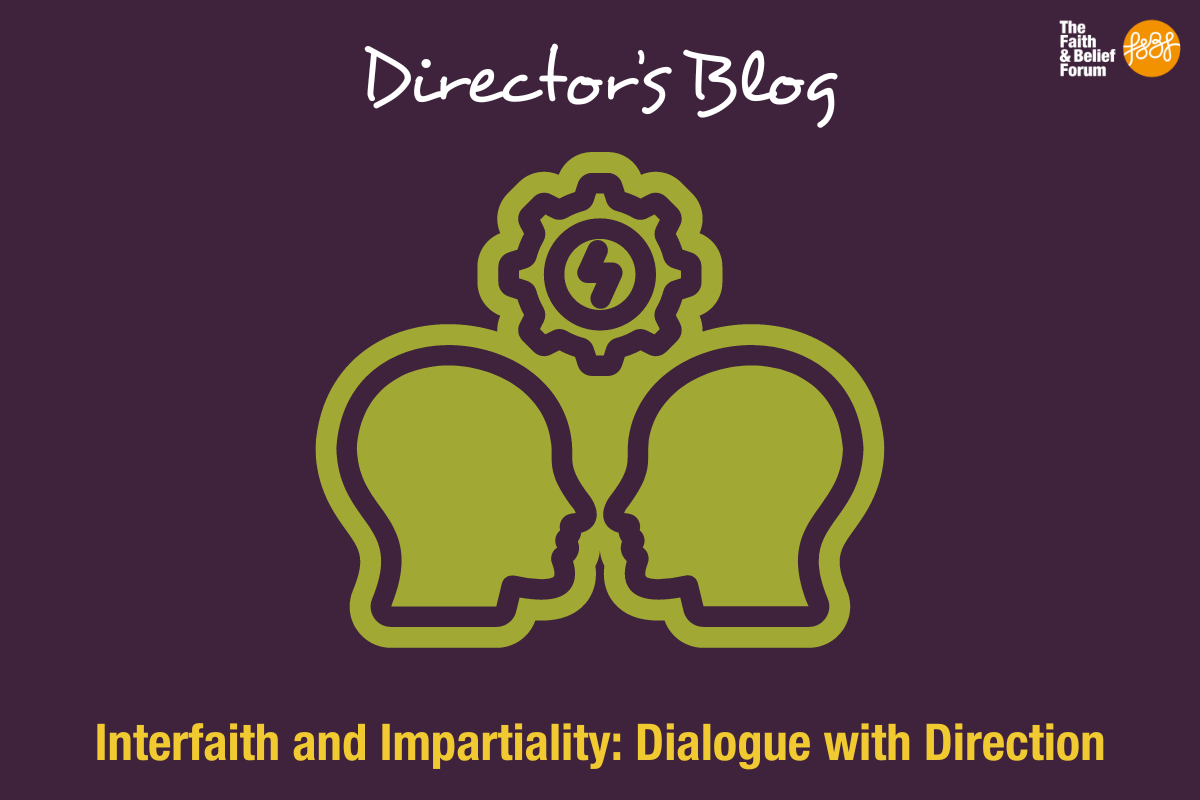
Challenging Faith Based Hate: True Stories
16 / 02 / 24
Menu

27 / 11 / 23

By Louisa Parrales, School Chaplain at Forest School, London
I am confident in the power of dialogue to create a positive sense of self and more peaceful, inclusive communities. I am confident that skills for listening with empathy and understanding of identity are vital and yet often undervalued.
This confidence has led to us as a school to partner with The Faith & Belief Forum over the past few years to work to embed a culture of dialogue across the school, using a range of their resources and also resources from others.
So what does this confidence look like when the world is shaken by the devastating war and violence in Israel – Palestine?
Do these tools we have added to our toolbox really work in the most difficult of times? How do we speak of dialogue now? How do we value listening and empathy?
The impact of the war cannot be understated on any school community and the first question asked is what is most needed right now; what messages, information and action is the most useful, how do we proceed?
For us, the answer was twofold – firstly, clear information and an explicit message of empathy for all who suffer. Solutions Not Sides is another fantastic organisation we have partnered with and their assembly was perfect to reinforce this message that we as a school community care about all who are suffering and dying as a result of violence. The clear message too that we need to understand the words we choose as we speak about what is happening and will not tolerate Antisemitism or Islamophobia.
With Solutions Not Sides resources in the one hand, we reached with the other hand for our F&BF resources.
What do the principles of RADIO look like in a tutor time, what do the principles of RSVP and REPLY look like when a heated conversation emerges in the playground at lunchtime.
RADIO has become a well-known acronym at our school and pupils and staff have worked hard to define what respect actually looks and sounds like. How can we create spaces that are not only safe but also brave and inclusive of all voices, not matter how uncomfortable.
The I statements has felt like the most useful part of this acronym at the present time, knowing that no matter what we feel is the ‘right’ or ‘wrong’ of the conflict, we can only ever speak from our own perspective. Teachers have found it a useful way to encourage reframing phrases and statements presented as whole community ‘truths’, reminding pupils that they speak for themselves, not on others’ behalf. And for teachers, a reminder that as adults we too come with our own lens, we cannot come to any situation as neutral but we can recognise that when we speak using I statements it lessens the emotional conflict and demonstrates a desire to not only be heard, but to hear… “my understanding is ….” “I have seen others see things differently…” “what I have learnt is…”
Using these principles of RADIO, being honest about the challenges of what this looks like in reality and guiding pupils to learn with empathy the different perspectives of others – this confirms in me that confidence in the power of true dialogue.

16 / 02 / 24

15 / 02 / 24

16 / 01 / 24